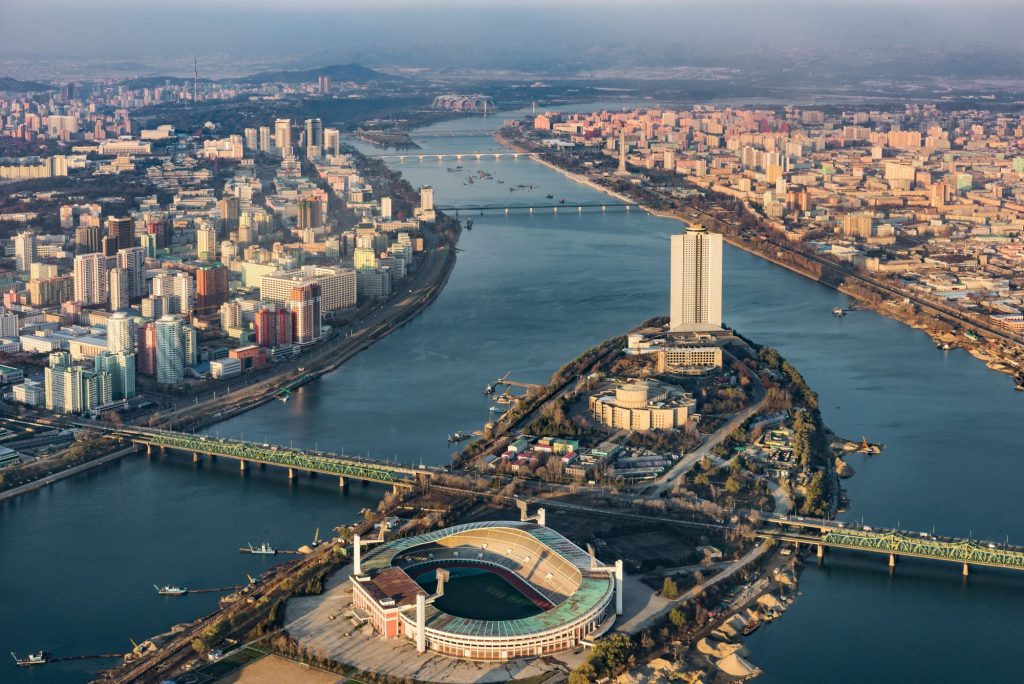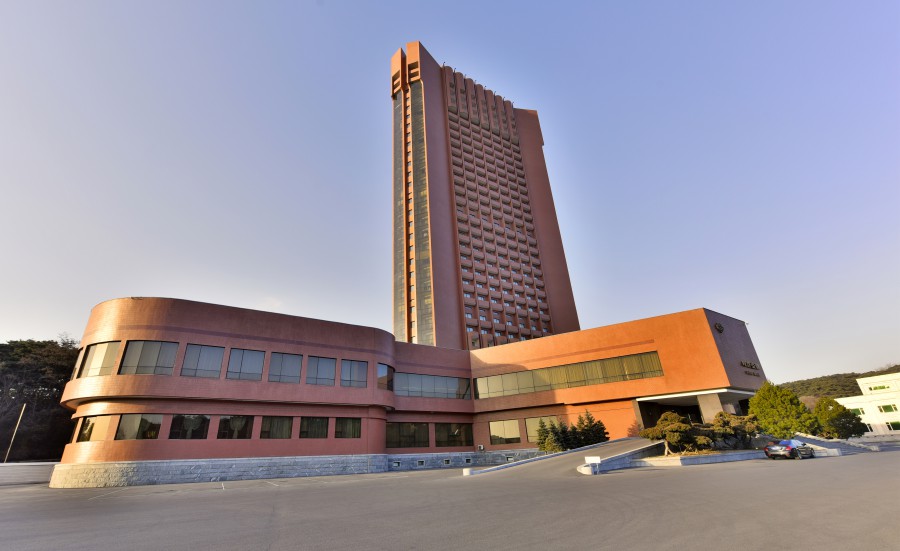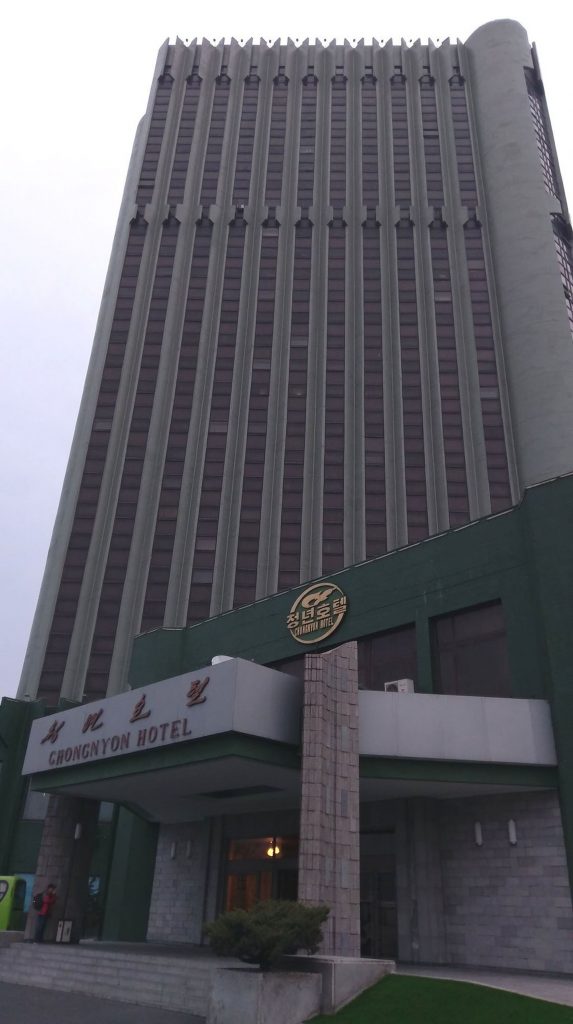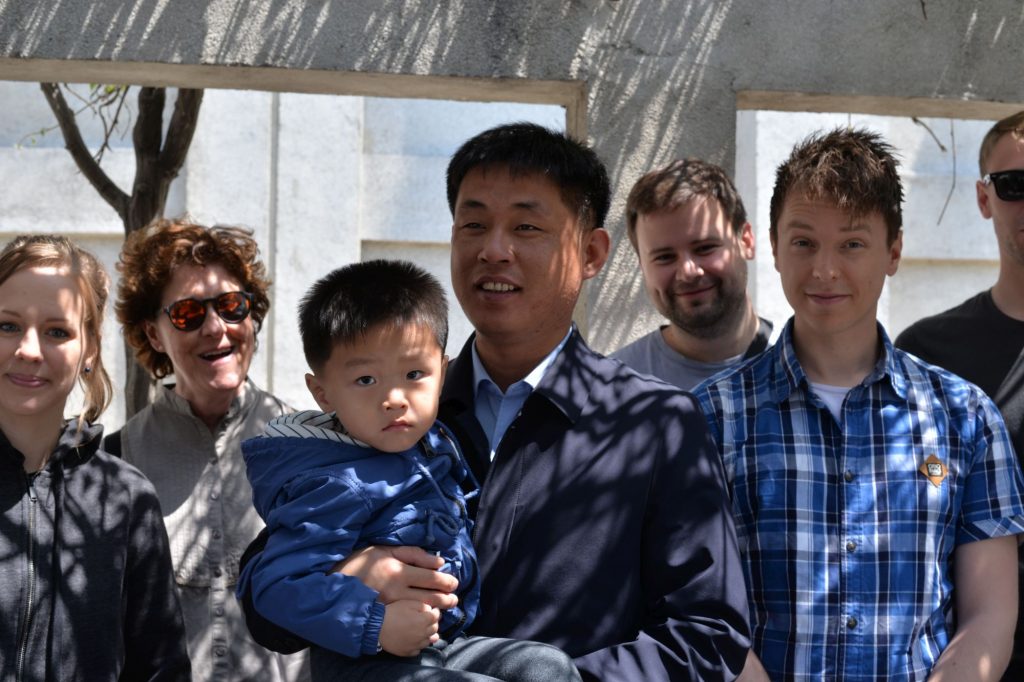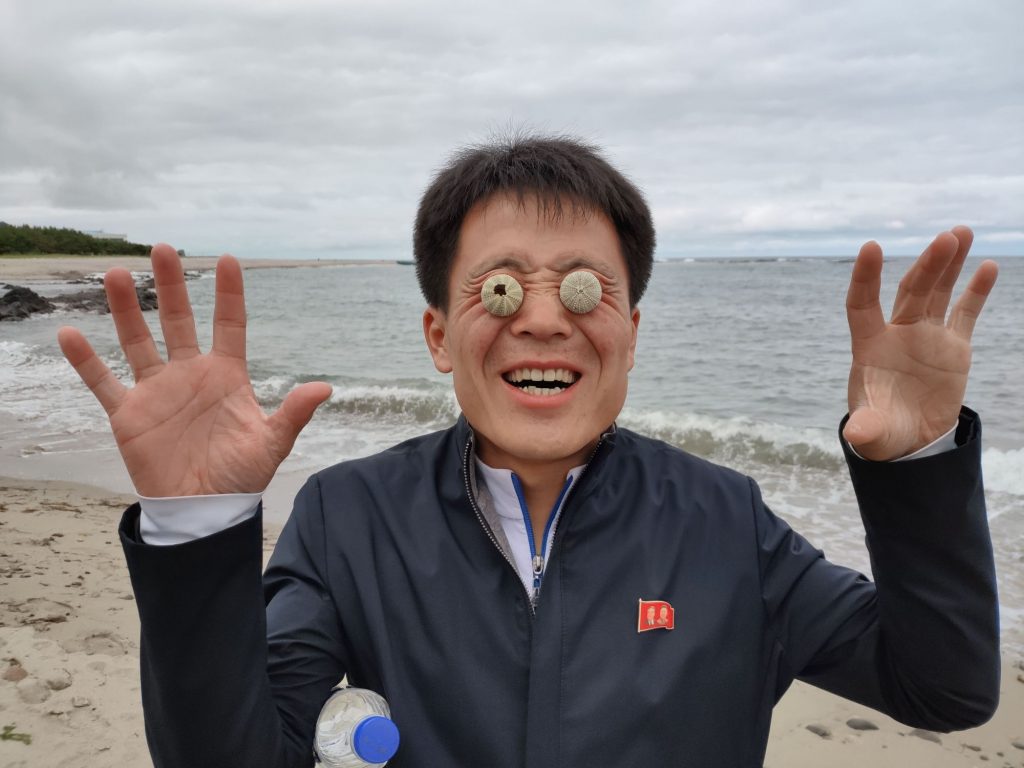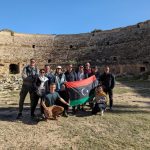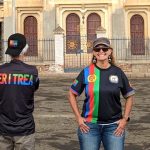We’ve been in the DPRK tourism business since 2008 and have had heard our fair share of myths about tourism into North Korea. I’ve compiled a list of our top 10 myths when travelling to North Korea which I’d like to expand on.
1. It’s hard to get a North Korean visa, and only so many people are “allowed” to visit each year.
This is a common North Korea tourism myth I hear. North Korea is very keen on encouraging tourists. In 2015, Kim Jong Un welcomed the idea of initiating new tourism projects to help increase foreign tourist numbers of up to two million visitors each year. Although figures from 2019 show tourism numbers reached as high as 300,000 for Chinese tourists and a little over 4,000 for western tourists. There is still a long way to go.
What does help though is the DPRK visa process is very simple, and can be arranged by us. The only people who have trouble getting visas are journalists – which may be why some media outlets continue to perpetuate this myth.
2. Only a few nationalities can visit North Korea and once you do you cannot travel to other countries
This is a common misconception especially for westerners. The only nationalities restricted from travel to North Korea are tourists travelling on South Korean (Republic of Korea) and United States of America (USA) passports. All other nationalities are legally allowed to visit the DPRK.
Once you have visited North Korea, your travels to any other countries are not affected. Your passport will not be stamped on entry or exit to the DPRK. However, if you wish to visit the United States after your tour to North Korea, you will no longer be eligible for the ESTA visa waiver program (providing you would have been otherwise) and will need to apply for a normal visa from your nearest US embassy or consulate.
You are able to travel to any country, including South Korea and Japan, without any hassle.
3. You can only visit Pyongyang and the DMZ, or a few places near Pyongyang
This myth is one of the more understandable ones as it is common for many tours to North Korea to have similar itineraries. The real reason for this is the same reason why lots of tour programs to other popular destinations like Beijing, Paris or London all look relatively similar. Tourists want to see certain highlights when they travel to particular destinations.
Most tourists wanting to travel to North Korea want to visit Pyongyang, the capital city and see the unique sites such as the Juche Tower, Korean War Museum, Arch of Triumph, Ryugyong Hotel, the Mausoleum, Kim Il Sung Square, the Pyongyang Metro, and so on.
In Pyongyang we arrange bicycle tours, marathon tours, culinary tours, farming tours, Korean language study tours where you can experience being an expat in Pyongyang, and a lot more.
It is possible to travel to eight out of the nine provinces of the DPRK, and we’re working on the last one! We arrange tours to visit North Hamgyong province – the largest and most rural province in the country, Rason Special Economic Zone, Mt. Kumgang in Kangwon province, Samjiyon & Mt. Paektu in Ryanggang province, Hamhung – DPRK’s second largest city located in South Hamgyong province, Sinuiju in North Pyongan province, and much more.
4. All tourists must stay at one hotel on an island
Another misconception we hear often regarding myths on North Korea. The Yanggakdo International Hotel is located on an island on the Taedong River which divides Pyongyang city into east and west. The views from the hotel are incredible and it is quite popular with tourists for being the tallest and largest hotel in the city. However, there are more than 13 different hotels where tourists can stay each with their own unique characteristic and advantage.
The Sosan Hotel is a favourite of ours due to modern comfort, affordability, and the chance of meeting international and local sport stars. We also arrange our tour groups to stay at the Koryo Hotel, Chongnyon Hotel, Changgwangsan Hotel, Ryanggang Hotel, Pottongang Hotel, Haebangsan Hotel, Rakrang Hotel, and others. This doesn’t include the numerous rural hotels around the country or the North Korean home stay.
5. The government will spy on you and they will try to brainwash you
Whether you’re curious about visiting the DPRK or you’re about to step foot into the country with us on tour, it is not unusually to have this question run through your head. This is also a particular question my YPT guides and I hear throughout our tourism career in North Korea. There’s no way to absolutely confirm this but with my 8+ years experience working in the country, I highly doubt the North Koreans are spying or taking notes on foreign tourists.
We at YPT arrange a tour group at least once a week throughout the year, and have been doing so for over 10 years. With the constant in and out trips, our two local guides who are with the group throughout the tour are with us to help answer any questions guests will most definitely have about the country.
With that said, it is important to know that North Korea has what amounts to extremely strict lèse-majesté laws, so it’s vital to avoid insulting their beliefs or ideology. You are more than likely to have differing opinions, but they will not try to brainwash you, so whilst their beliefs are important to them, they will also respect yours.
6. The guides are all government “minders”
To continue on from above’s North Korean tourism myth, it is commonly believed that the Korean guides are there to spy on you and monitor your reactions to things, collect information, etc. The reality is they work for the government in the same way most people in North Korea do; they work for a state owned enterprise that largely runs itself and is primarily interested in remaining as a sustainable business.
Local guides are hired for travel companies within North Korea to pursue their interests and career in tourism. They are hired based on their leadership, communication, knowledge, problem solving and people skills.
The majority of North Korean guides are fresh out of Pyongyang University of Foreign Studies, Tourism University, Kim Il Sung University or Commercial University after obtaining a bachelors in foreign language or tourism.
Some guides around the age of 30 years of age might be switching jobs as their previous jobs may have involved foreign trade, translating or working aboard. There has been a rise in this recently as UN sanctions have prevented most North Koreans from continuing work in this field and are left to aid the growing tourism sector.
Older guides around 40 years+ may be ex military. The ones we have met were previously a translator, radio communications, a driver or someone with more of an interesting position with fascinating stories to share. As odd as it seems for an ex military personnel to join tourism, it does make sense as most locals serve in the military.
The local Korean guides are there to ensure you don’t wander off away from the group on your own as it’s against local law, and to ensure tourists stay out of trouble. The same goes for tour guides in most countries. Generally though the most successful Korean guides are the ones who love their job, are incredibly eager to guide you around their country and enjoy meeting new people from around the globe.
7. The guides keep you in a bubble everywhere you go
This myth is mostly true. Approaching random locals on the street for a chat can be difficult to do so as North Koreans are quite conservative and usually avoid interfering with others. On top of that you have the language barrier. Waving and saying hello to the locals will get a smile and a wave in return, but it’s mostly left at that.
However, there are certain times and places where it’s a lot easier to meet and interact with locals. Holidays are a great time to mingle and gives perfect opportunities to dance with a university student at a mass dance, play sports against local teams, share a photo with families having a BBQ on Moran Hill, show off your bomb diving skills at Munsu Waterpark, skiing at Masik Resort, and playing beach games at Wonsan.
The majority of our tours will visit the Grand People’s Study House, and various other schools where English, German, Russian, Chinese and French classes are held throughout the week. The teacher’s very much welcome impromptu classes by foreigners to help their students listen and interact with a native speaker.
8. Pyongyang is the “showcase” city
There’s no doubt Pyongyang is the best city in the country but its purpose wasn’t to be built just to deceive the very few foreign visitors it receives each year into thinking the place is without problems.
As mentioned earlier it’s very simple to travel well beyond Pyongyang so it would pretty much automatically defeat the purpose of trying to fool us foreigners. Feel free to begin a discussion with your local guides and they’ll usually be quite open to talk to you about the problems the country faces and why they feel these problems exist.
Pyongyang is a functioning city, people do ride the metro to work, they live in the apartment buildings and they go about life every day. It may not be possible for everyone to live in Pyongyang, but the city and the people in it are still people trying to make a living.
9. Everyone is an actor and what you see is all arranged for tourists
I usually hear this question from foreigners when we ride the metro in Pyongyang. The metro is a living breathing system that serves over 2 million what I like to call, Pyongayangites. We run a tour once a year where we explore 13 out of the 16 metro stations. The amount of locals we run into, the peak hour rush we endure, and the faces that are mixed of curiosity as to why there are foreigners riding the metro, and others of exhaustion after a busy day are well spotted. Kids are always up for a bit of banter as they know a little English and like to show off to their parents or grand parents. Have they prepared everyone just for my small tourist group?
Driving through downtown Pyongyang, one of the busiest business districts of the capital and seeing many locals stepping off of busses, walking the streets or cycling. A common asked question is “where are those people going?”. My best bet would be going to school or work during the weekday. Are they just doing it for show? I’ve been in North Korean countless times on my own and the morning and afternoon peak hours don’t stop for anyone. This happens regardless of whether we are there or not.
I could go on and give multiple examples but over all I don’t think the North Koreans go to all this effort to arrange a show for a few thousand visitors each year.
The only time I know that North Korea are putting on a show for foreigners is when we visit schools or the Mangyongdae School Children’s Palace. I used to be a teacher in Vietnam. The schools I taught at would hold Open Days to allow the public to enter the school campus and spectate a lesson at any given time throughout the day. This is done to attract more parents to enrol their children at the school.
The principle would select a lesson plan for me and my classes. I was told to rehearse this program with my students and ensure every single one of them remembers the script and can answer what I ask correctly with confidence. Some schools made me do this at least a month ahead of Open Day.
On the day my students would wear their best attire and my teacher aids would also apply make up to the students to make them look more presentable.
This is exactly what happens at North Korean schools. Why do they do it? To present their absolute best for foreign audiences. Is it kinda weird? Yeah, but I know the system. So at times I like to break the system. During classes I ask if it’s okay to interrupt the teacher and to have a student elaborate on the previous question or ask something else related to it. Lots of head scratching but you’ll have a few that’ll try to answer. It’s great and I can see the students enjoy it. Teachers not so much.
10. It would be interesting but it won’t be fun
It’s very possible to have fun in the DPRK, but we would say that wouldn’t we? Check out our TripAdvisor reviews and read what our former Pioneers shared about their experiences with us. For more questions about North Korea head over to our FAQ page.
This was an incredible fun write up for me, thank you for reading and if you have any questions feel free to contact us.










